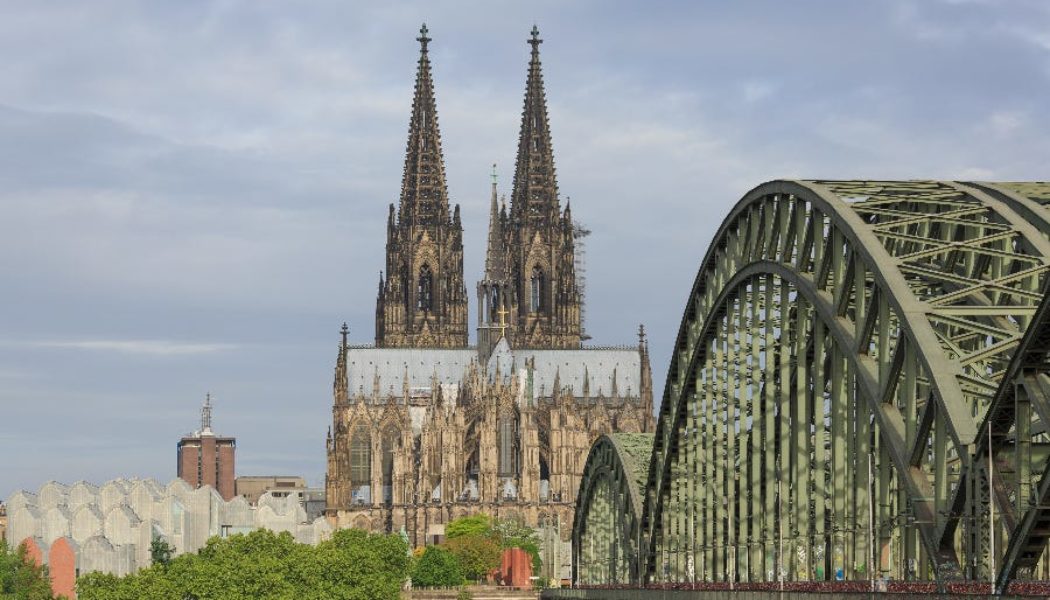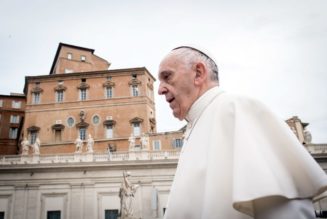Germany’s Cologne archdiocese announced Monday that it expects a budget deficit of almost 21 million euros in 2024.
The Jan. 29 announcement underlines the growing economic headwinds facing the Church in Germany, long regarded as one of the wealthiest parts of the Catholic world.
Cologne archdiocese — which has been described as the world’s richest diocese — set out its economic plan for 2024 against what it said was a “background of declining membership numbers and a continued weakening economy.”
Germany, Europe’s most populous country and largest economy, saw a 0.3% fall in its gross domestic product (GDP) in the final quarter of 2023, amid high inflation and interest rates, low demand for exports, and strikes.
Cologne archdiocese said that its income from Germany’s church tax in 2023 was likely to be around 658 million euros, roughly 30 million euros less than in 2022.
The archdiocese — which serves 1.73 million Catholics, more than any other German diocese — forecasts a total revenue for 2024 of around 890 million euros.
It expects to have an income of 43 million euros from investments and securities, but to incur expenses of 954 million euros.
This is expected to leave a deficit of 20,645,000 euros, almost $22.5 million, which it would cover from its reserves.
This year’s projected deficit is smaller than in previous years. The archdiocese forecast a deficit of 36.8 million euros in 2021, 27.4 million euros in 2022, and 25 million euros in 2023.
In 2021, the archdiocese ended the year with a positive balance of 85 million euros and in 2022, 30 million euros.
In the introduction to a leaflet on the 2024 economic plan, Cologne archdiocese’s financial director Gordon Sobbeck wrote: “These are challenging times, and this can be felt in many places. For us as the Archdiocese of Cologne, this means above all: significantly declining membership figures and a weak economy are leading to lower income.”
“At the same time, costs are rising considerably, e.g. for personnel due to the adoption of the wage deal in the public sector.”
“Energy will also become significantly more expensive for us in 2024, as the framework agreements concluded in 2021, which we were still able to benefit from in 2023, have expired.”
“Against this backdrop, the 2024 financial plan shows a negative annual result of around 20.6 million euros, which can be offset from the equalization reserve.”
The church tax remains the most important source of income for Germany’s dioceses.
Catholics who live in North Rhine-Westphalia, the German state that includes the city of Cologne, must pay a 9% surcharge on top of their income tax liability.
This church tax is collected by the state’s tax office, which takes 3% of the money raised for processing the tax and passes the remainder to dioceses.
The tax is controversial because the only way for baptized Catholics to opt out of the system is to declare formally that they are leaving the Church, after which they are told they may no longer receive the sacraments, hold Church posts, or serve as baptismal or confirmation sponsors.
The Church in Germany received a record 6.85 billion euros in church tax in 2022, the last year for which records are available. But in the same year, a record 522,821 Catholics in Germany formally left the Church.
Among the more than half a million departures were 51,345 in the Archdiocese of Cologne, the highest figure among German dioceses.
The archdiocese has seen significant turmoil in recent years surrounding its leader, Cardinal Rainer Maria Woelki.
In May 2021, Pope Francis ordered an apostolic visitation of the archdiocese amid fierce criticism of its handling of abuse cases. In September that year, he ruled that Woelki, who has led the archdiocese since 2014, should remain in office.
The cardinal took a sabbatical but when he returned in March 2022, he submitted his resignation to Pope Francis. The Vatican has made no announcement regarding the resignation offer. Woelki turned 67 last August and continues to serve as Archbishop of Cologne.
The counterintuitive phenomenon in which Germany’s church tax revenue is rising as membership plunges has been sarcastically termed the Kirchensteuerwunder, or “church tax miracle,” by critics of the country’s bishops’ conference.
According to the German Catholic news agency KNA, the rise in formal departures is “still more than offset by the overall economic development with lower unemployment, rising incomes, and thus increasing tax revenues.”
But many observers believe the church tax’s “golden years” are coming to an end. A 2019 study published by the Catholic Church and the Evangelical Church in Germany (EKD) predicted that, if trends continue, “in the year 2060, church tax revenues in all four regions [north, east, south, and west Germany] will only be enough to cover half of the half of the expenditures possible in 2017.”
German dioceses are already introducing austerity measures. The Diocese of Münster said in August 2022 that it was reconsidering future construction projects, while the Diocese of Rottenburg-Stuttgart said in May 2023 that it expected to have around 40% less church tax revenue by 2040.
Münster and Rottenburg-Stuttgart are the second and third most populous dioceses in Germany, with 1.71 million and 1.66 million Catholics respectively.
Archbishop Heiner Koch announced “deep cuts” to the real estate portfolio of his Archdiocese of Berlin in July 2023.
In the same month, the Diocese of Limburg said it was assuming that by 2060 it would have less than 50% of the current financial resources at its disposal, while the Diocese of Würzburg said it would seek to reduce its budget by 18% by 2030.
The Diocese of Eichstätt said in August 2023 that it had recorded a deficit of 12.5 million euros ($13.7 million) in 2022.
Both Würzburg and Eichstätt are in Bavaria, traditionally regarded as Germany’s Catholic heartland.
The growing financial constraints in Germany may have a knock-on effect on Catholics in the developing world.
Germany is home to major Catholic charities such as Adveniat, which operates in Latin America and the Caribbean, Misereor, which focuses on serving the poorest of the poor, and Renovabis, which helps people in Central and Eastern Europe.
In total, Catholic dioceses, relief agencies, and religious orders gave around 673 million euros (roughly $731 million) to social and pastoral projects around the world in 2022, the last year for which figures are available.
Comments 6
Services Marketplace – Listings, Bookings & Reviews










